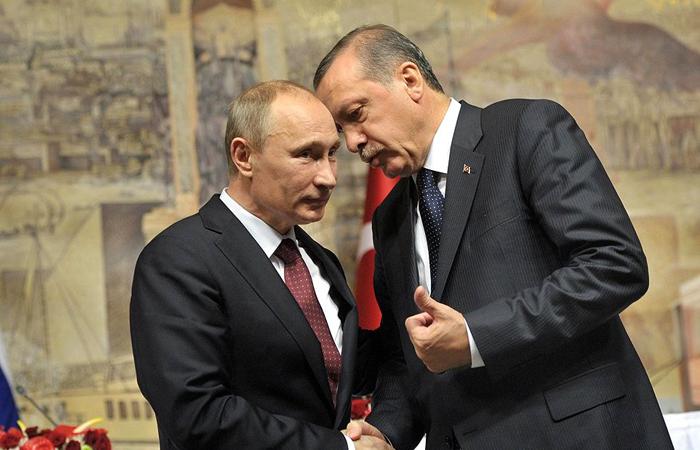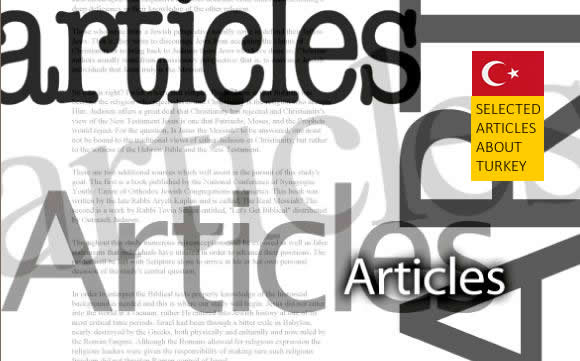Article Scan – January 9th: Some thoughts on Turkey’s “Parallel State” and Corruption
Some thoughts on Turkey’s “Parallel State” and Corruption
Turkey’s Prime Minister, Recep Tayyip Erdogan, has recently been marketing a new term for Turkish public consumption: the “Parallel State.” This of course is a term that bears a striking resemblance to the familiar term, the “Deep State,” which describes the once anti-democratic forces within the Turkish establishment that prevented the will of the people from being realized, achieving this through violent means such as assassinations and extrajudicial killings of Kurds. The deep state (derin devlet) of course, went hand-in-hand with Turkey’s history of coups, and the grasp the military once had over the state institutions, with its fate being sealed with the Ergenekon and Balyoz trials.
Following the unfolding of the events of the December 17 corruption probe, Erdogan was quick to attribute the probe as a work of the parallel state (paralel devlet). In other words, a new “state within the state,” had emerged within the Turkish bureaucracy, and the corruption probe was nothing less than a blatant attempt to topple his government. In fact, as far as Erdogan was concerned, this did not begin with the corruption probe, but actually with the Gezi Park protests. In his New Year’s Eve message, Erdogan stated that “In May 2013 when everything was going well, both domestic and external powers, which were jealous of our successes, started the Gezi protests and attacked the nation’s hopes and the future and independence of our country. This movement was followed by a plot started on Dec. 17.”
Defining the parallel state however was much easier than the underground shady forces of the deep state, since from the beginning there was only one culprit: the once staunch ally of the AKP…
more: http://louisfishman.blogspot.com/2014/01/some-thoughts-on-turkeys-parallel-state.html
Turkey’s Very Normal Nuclear Cooperation Agreement with Japan
On 8 January, the editors of Asahi Shimbun wrote an oped claiming that at Ankara’s request, the Japan-Turkey nuclear cooperation agreement “contains a provision that would enable Turkey to eventually enrich uranium and extract plutonium by reprocessing spent nuclear fuel. But this could be problematic because the technologies for uranium enrichment and plutonium extraction can lead to the production of nuclear weapons. In this matter, the international community has been acting with extreme caution.”
The oped – which appears to be a political hit job on the Japanese nuclear industry – was wrong. The text of the nuclear cooperation agreement was released today and, unsurprisingly, it contains a virtual Japanese veto over the altering of spent fuel rods. Article 8 states, “Nuclear material transferred pursuant to this Agreement and nuclear material recovered or produced as a by-product may be enriched or reprocessed within the jurisdiction of the Republic of Turkey, only if the Parties agree in writing.“
Turkish Intelligence Agency (MIT) at center of political storm (by Pınar Tremblay)
On Jan 1, news broke that a big rig was stopped in the city of Hatay en route to Syria. Initially the focus of the news was on the Turkey’s Humanitarian Relief Foundation (IHH), but savvy observers quickly realized the involvement of the Turkish National Intelligence Agency (MIT) was the real news. Different sources confirmed that MIT personnel were accompanying the big rig and that they had prevented a police search. Al-Monitor’s Turkey Pulse deserves credit for accomplishing the difficult task of explaining the complexities of embedded false news, conspiracy theories and facts succinctly of the big rig scandal and other issues on Turkish-Syrian border.
While many pundits have focused on whether foundations such as the IHH are overstepping their boundaries from humanitarian to lethal aid in the Middle East, I have been struggling to understand how the MIT ended up in the midst of this crisis. Observers of Turkish politics cannot miss that since the start of the Syrian civil war in mid-2011, the MIT’s powers have expanded, so much so that many argue the MIT now is in a position to dominate the foreign and defense ministries in Turkey.
Turkish Government, Shaking Up Police, Now Seeks More Power Over Judiciary (By DAN BILEFSKY and SEBNEM ARSUJAN)
Police officers in Istanbul last month. Chiefs in 15 Turkish cities have been demoted or reassigned, the police said Wednesday. Sedat Suna/European Pressphoto Agency
The Turkish government reshuffled the police force yet again overnight, the police said on Wednesday, and sought to expand its power over the judiciary in a move that one former justice minister likened to a coup.
Analysts said both actions appeared calculated to fend off a widening corruption investigation that has plunged the government of Prime Minister Recep Tayyip Erdogan into its worst crisis since it came to power more than a decade ago.
The investigation, which has linked senior politicians to murky business deals, has resulted in the resignation of three ministers, whose sons are under suspicion, as well as a fourth minister. It centers on accusations that officials took bribes in return for bending zoning rules. Turks have been riveted by lurid details leaked to the news media, like the discovery of $4.5 million in cash stuffed in shoe boxes at the home of the director of a state bank.
more: http://www.nytimes.com/2014/01/09/world/europe/turkey-corruption-inquiry.html?smid=tw-share&_r=0




